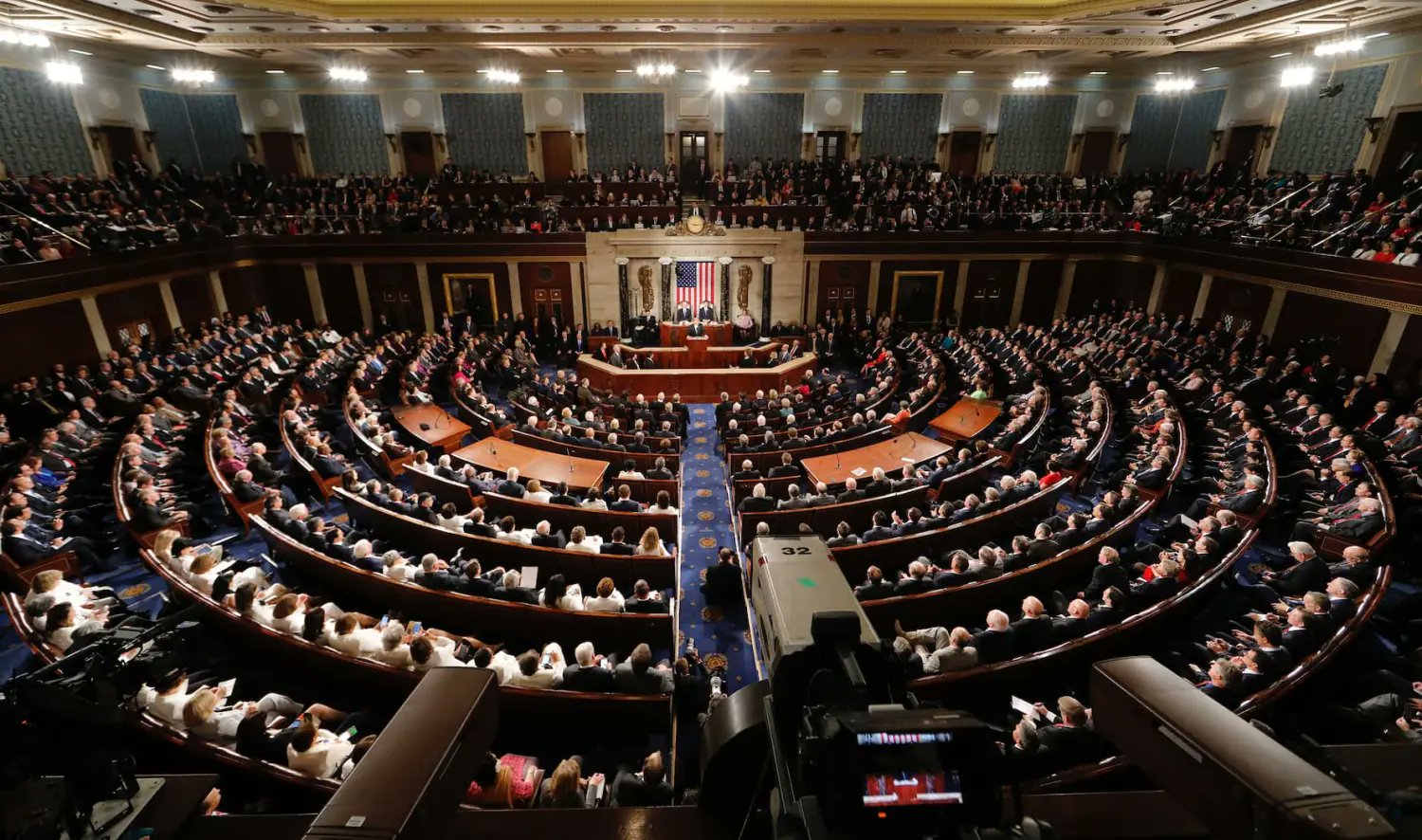
U.S. Lawmakers Move to Ban Visas, Freeze Assets of Miyetti Allah Members Over Alleged Christian Persecution in Nigeria

A fresh wave of diplomatic tension may be looming between Nigeria and the United States as a new bill introduced in the U.S. Congress has called for sweeping sanctions, including visa restrictions and asset freezes, against members of the Miyetti Allah Cattle Breeders Association of Nigeria (MACBAN) and Miyetti Allah Kautal Hore. The bill, which targets individuals and entities accused of committing or supporting severe violations of religious freedom, places the two controversial groups under direct scrutiny for their alleged role in attacks against Christian communities in Nigeria.
The proposed legislation, titled The Nigeria Religious Freedom Accountability Act, was reportedly sponsored by a bipartisan group of lawmakers who have cited what they describe as “consistent and documented persecution” of Christians in Nigeria’s Middle Belt and northern regions. The bill, which has already drawn international attention, specifically names the Miyetti Allah organizations as groups whose actions, statements, or affiliations have allegedly contributed to widespread religiously motivated violence.
If passed into law, the bill would authorize the U.S. government to impose a range of punitive measures on identified members and sponsors of these groups. These include visa bans, restrictions on travel to the United States, and the freezing of financial assets and properties linked to the individuals or entities. The sanctions would also extend to anyone found to be aiding or abetting the named organizations in acts that threaten religious freedom or incite violence.
This move follows years of criticism from human rights organizations and religious freedom advocates who have repeatedly accused the Nigerian government of failing to protect Christian communities from attacks by armed herdsmen, some of whom are said to have links to Miyetti Allah. The group, which represents Fulani cattle herders across Nigeria, has often been accused of defending or justifying violent attacks against farmers, particularly in Christian-majority areas. While the group has consistently denied any involvement in such violence, claiming it is a legitimate socio-cultural organization, the perception of complicity has persisted in both local and international discourse.
Lawmakers in Washington said the bill is part of a broader effort to hold accountable non-state actors who perpetuate religious violence in Nigeria. One of the sponsors was quoted as saying that the U.S. can no longer “turn a blind eye to the systematic and targeted violence” against Christian communities, emphasizing that religious freedom is a “non-negotiable human right.” The legislator argued that when governments fail to act, the international community has a moral responsibility to intervene through diplomatic and economic pressure.
Nigeria has long faced international scrutiny over issues of religious violence, with organizations such as Amnesty International, Human Rights Watch, and the United States Commission on International Religious Freedom (USCIRF) repeatedly calling for stronger measures to protect vulnerable groups. Reports over the past decade have documented numerous attacks on churches, kidnappings of clergy, and mass killings in farming communities. Many of these incidents have been attributed to armed groups described as “herdsmen militias,” though the Nigerian authorities often classify them as bandits or criminal gangs.
The introduction of this bill marks one of the most direct attempts by the U.S. Congress to impose consequences on Nigerian entities accused of religious persecution. While the bill still needs to pass both chambers of Congress and receive presidential assent before becoming law, its mere introduction has already sparked reactions from observers. Some analysts view it as a strong signal that the U.S. government is losing patience with what it sees as Nigeria’s inability or unwillingness to curb religiously motivated violence.
Critics of the bill, however, warn that such measures could complicate Nigeria–U.S. relations and may be perceived as foreign interference in domestic affairs. They argue that the situation in Nigeria’s Middle Belt and northern regions is far more complex than a simple narrative of religious persecution, pointing to issues like land disputes, climate change, and resource competition as key drivers of the crisis. Some also note that painting groups like Miyetti Allah with a broad brush could further inflame ethnic tensions and undermine ongoing peace efforts.
Leaders of the Miyetti Allah Cattle Breeders Association have yet to issue an official response to the bill, but in previous statements, the group has repeatedly denied involvement in attacks, insisting that it advocates peaceful coexistence between farmers and herders. The group has also accused Western organizations of spreading misinformation and of unfairly targeting Fulani herders in international media. Still, the naming of Miyetti Allah in a U.S. congressional bill is likely to intensify scrutiny on its members and operations both within and outside Nigeria.
Nigerian authorities have not yet released an official statement regarding the U.S. bill, but diplomatic sources say the matter could soon become a major talking point between Abuja and Washington. If the bill progresses, the Nigerian government may be pressured to demonstrate tangible efforts toward addressing religiously motivated violence and ensuring justice for victims. Failure to do so could risk further sanctions, not only on non-state actors but also potentially on officials seen as enabling or ignoring such abuses.
Religious leaders across Nigeria have also reacted cautiously to the news. Some Christian associations have welcomed the proposed sanctions, calling them a long-overdue step toward international accountability. Others, however, warn that the move could escalate tensions, urging both countries to prioritize dialogue and reconciliation over punitive measures. Muslim leaders, on their part, have criticized what they see as a one-sided narrative, arguing that Muslims have also been victims of violence in parts of Nigeria.
The introduction of the bill underscores a growing global concern about Nigeria’s internal security crisis and its implications for human rights. Over the years, both local and international bodies have urged the Nigerian government to adopt a more balanced and effective approach to handling the conflict between herders and farmers. With the United States now considering direct sanctions, the spotlight is once again on Nigeria’s leadership to show concrete results.
For many Nigerians, the development serves as a reminder that the world is watching. The proposed U.S. sanctions, if enforced, could have far-reaching effects—not only on the individuals and groups named in the bill but also on Nigeria’s international image and diplomatic standing. As debates continue in Washington, attention will inevitably shift to how the Nigerian government and Miyetti Allah leadership respond to the growing chorus of international concern over alleged religious persecution and violence.
Whether the bill passes or not, one thing is clear: the issue of religious freedom in Nigeria has once again taken center stage in global politics. And as pressure mounts from abroad, the call for justice, peace, and accountability within Nigeria has never been louder.


